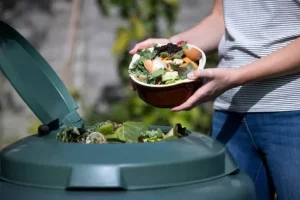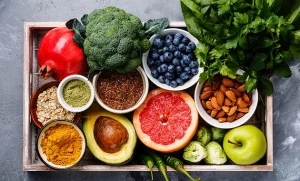Starting your culinary adventure as a novice can be both exhilarating and daunting, so we have assembled these essential cooking tips for beginners as your guide in the kitchen, providing guidance towards flavorful creations and building up culinary confidence.
Keep an open mind and don’t be afraid to experiment! Not every recipe will turn out perfectly, but learning from mistakes will ultimately help you become a better cook.
1. Read the Recipe Thoroughly
One of the key cooking tips for novice chefs is reading your recipe from start to finish carefully, paying special attention when skimming or getting distracted while performing other tasks (like feeding your baby or trying to calm a screaming toddler), in order not to miss important points like marinating meat for 24 hours beforehand or needing a springform pan in order to bake your dish successfully.
Notes at the bottom of some recipes can provide important additional information that isn’t covered in their main ingredient lists or instructions, so it’s always wise to peruse these notes for additional tips!
Once you’ve read your recipe, make a list of any missing ingredients or tools so you can purchase them before beginning to cook. This process, known as mise en place, is an efficient way of streamlining the cooking process by ensuring all essential items are in place before turning on your stove and will prevent mishaps from arising in your kitchen. It will save both time and frustration!
2. Prep Your Ingredients
Learning to cook can be an enriching journey that allows you to expand your culinary horizons while building bonds between friends and family. While experienced chefs may be able to produce delectable meals without following a recipe, novice cooks typically rely on such guides during their first steps in the kitchen.
Before beginning to chop, measure, or combine ingredients, take a moment to gather all the necessary tools and prepare the kitchen. This technique, known as “mise en place,” will make the entire cooking experience smoother and less stressful.
Make sure that a garbage bowl is nearby to quickly dispose of peels, leaves and other forms of waste while working on your recipe. This will reduce trips to the trash bin while helping you focus on what matters – your meal! Finally, always opt for high-quality ingredients; fresh seasonal produce and premium cuts of meat will allow the natural flavors of your meal to come through while enriching its flavor profile and avoiding overseasoning or additive use in recipes you create.
3. Master the Art of Simmering
Simmering is one of the fundamental cooking techniques, providing for deep flavor blending, tenderization of proteins, and preservation of nutritional value. Simmering can also save time when making stews and hearty soups!
Simmering is an effective method for adding flavor and texture to ingredients while keeping a constant temperature throughout the cook process1. Simmering can be challenging for new cooks as it requires patience and close monitoring to prevent their pot from boiling over. Therefore, it’s crucial that they stay close by the pot until a simmer has been reached.
Simmers should exhibit small bubbles that tremble gently. Boiling, on the other hand, involves rapidly rising water temperatures resembling rapid rolling boils, making delicate ingredients such as poached eggs more vulnerable. With practice, it should become easy to distinguish between simmering and boiling; you may even discover which cooking methods or tips work best with different recipes and flavor combinations!
4. Make One-Pot Meals
No matter if it is a casserole, skillet meal or any of these easy one pot recipes – cooking meals that require just one pot is an efficient way to keep weeknight dinners simple and tasty! By using either a dutch oven, casserole dish or simple cast-iron skillet these tasty one-pot meals make cleaning up afterward much simpler too!
Simple meals can often be full of flavor and made from pantry staples you already have at home, such as this delicious chicken and rice soup recipe or spicy chorizo sweet potato one-pot meals that can be on the table within 30 minutes. Also consider this hearty lamb chickpea curry or this weeknight sticky salmon dinner featuring in-season navel oranges – they all fit this category of quick yet flavorful dinner options!
One-pot meals provide you with an opportunity to explore a range of cuisines and flavors, particularly those which combine different ethnic foods, like Greek chicken and lemon rice or Spanish-style paella. Even better: Some delicious one-pot dinners can even be prepared in your slow cooker!
5. Celebrate Your Success
Learning how to cook takes patience and practice, but anyone can develop their cooking skills. From making healthy meals for one to feeding an entire family, every success in the kitchen should be celebrated – no matter how minor! Don’t hesitate to embrace failure as part of the learning experience and celebrate every achievement along the way.
Utilizing these smart cooking tips for beginners will quickly help you become an adept chef! Start small with recipes and ingredients you know will suit your skill level and explore different flavors without being afraid of trying something new! Be sure to follow safe food handling practices when handling knives – consider purchasing an easy-use kitchen knife from Wirecutter or Cooks Illustrated as they offer recommendations. Finally, do not forget mise en place and clean as you go to keep cooking sessions enjoyable while remaining mindful of both time and space – happy cooking!




